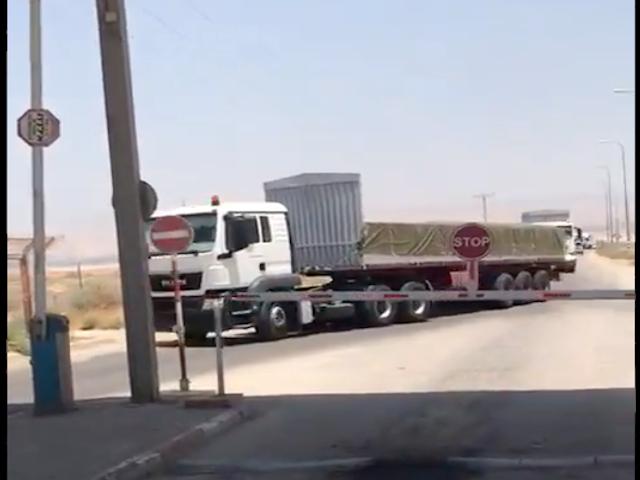In a significant development, Israel has announced plans to open the Kerem Shalom border crossing with Gaza for the inspection of humanitarian aid trucks. This move, a first since the onset of the war, aims to enhance the daily influx of aid into Gaza. The decision comes amidst persistent international pressure, notably from the Biden administration, to facilitate aid entry through this vital crossing.
Kerem Shalom, the primary gateway for goods into Gaza, has been under scrutiny as Israel tightened its control in response to a Hamas terrorist attack on October 7. The Israeli government's measures, including limitations on aid and restrictions on fuel to prevent its misuse by Hamas, reflect a cautious approach in dealing with a volatile situation.
The Biden administration and the broader international community have been pressuring Israel for weeks to open Kerem Shalom, given that it is the Gaza's main goods crossing. Until now, all aid has been entering Gaza through Rafah, which is mean primarily for pedestrians. (3/14)
— Jacob Magid (@JacobMagid) December 7, 2023
The Israeli cabinet's approval to allow minimal humanitarian aid daily has been a delicate balancing act, addressing humanitarian needs while maintaining security concerns. The U.S. views the opening of Kerem Shalom for inspections as a positive, albeit partial, response to its expectations. Continued U.S. advocacy for the full operationalization of the crossing underscores the complex interplay of humanitarian, political, and security factors in the region.
Colonel Elad Goren, representing Israel's COGAT military liaison with the Palestinians, emphasized that even without Kerem Shalom's full functionality, Israel could facilitate up to 250 aid trucks daily through the Egyptian Rafah crossing. However, the Nitzana crossing, currently used for inspections, is not optimized for this volume, leading to significant delays. The proposed use of Kerem Shalom aims to streamline this process, enhancing Israel's capability to support humanitarian efforts.
Sirens sound in Kerem Shalom, near the Gaza border https://t.co/RQrGHgluu1
— Sport Sage (@SageSport5521) December 7, 2023
Goren's remarks also shed light on the logistical challenges faced by international agencies in distributing aid within Gaza. The Israeli stance suggests a need for these agencies to bolster their operational capacities to ensure efficient aid distribution.
The UN, countering Israeli assertions, points to the limitations imposed by the ongoing military campaign on its distribution efforts. This highlights the necessity for a sustained humanitarian ceasefire to address the escalating humanitarian situation effectively.
Live update: Israel to open Kerem Shalom Crossing for Gaza aid inspections for first time since war started https://t.co/yM9eShIkUD . Click to read ⬇️
— TOI ALERTS (@TOIAlerts) December 7, 2023
Before the war, approximately 500 trucks entered Gaza daily, mainly through Kerem Shalom and the less scrutinized Egyptian Salah a-Din crossing. The war has drastically reduced this number, underlining the urgency of finding durable solutions to facilitate humanitarian aid while ensuring regional stability and security.


